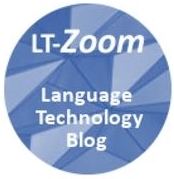
Run your translation operations in the cloud, it’s so much more efficient!
David Čanek is the founder and CEO of Memsource, a software company providing an AI-powered translation management system. Memsource is based in Prague, Czech Republic and has a team of 80 located in Europe, North America, and Japan. David, a graduate in Translation and Comparative Studies, received his education at Charles University, Prague, Humboldt University in Berlin, and the University of Vienna. His professional experience includes product management and business development roles in software and translation industries. Philippe Wacker spoke with David in advance of the Language Technology Industry Summit 2018.
Philippe Wacker, Secretary General, LT-Innovate: David, most translation insiders will know Memsource. Still, can you describe what Memsource does?
David Čanek: We are a cloud-based translation management system. So, we help customers with two things: to translate and manage translation. We provide the software platform in which translation (be it through a human or machine) gets produced and managed end to end. When we started, most of our customers were translation companies. Now, most of our new customers are from the global enterprise category.
Philippe Wacker: What made you start Memsource back in 2010? It seems to me that the translation technology space was quite heated already then.
David Čanek: In about 2007 I quit a product job in a language technology startup and was not sure what to do next. A friend of mine needed help with his translation business. I studied translation at university but never worked in the industry, so I got quite excited by this opportunity. I enjoyed the translation services experience but I am more of a product person, so I thought: how could I combine my passion for technology and translation? And that is how Memsource started.
Philippe Wacker: So, would you say that the reasons for starting Memsource were more emotional than, say, to exploit a business opportunity? Did you have a detailed business plan when you started?
David Čanek: Totally. My thinking was at that time that I should do what I know best and what I am passionate about. Especially when starting a business. I would still stick to that. As for a business plan, I think I had something but it did not matter much. It is important to plan but it’s quite hard to plan when you’re starting out and have no history. Too many unknowns. So, planning is more important at a later stage. Memsource is in its 8th year.
Philippe Wacker: How is it going for you?
David Čanek: Not too bad at all. In 2017 our customers have uploaded 24 billion words for translation to our servers and our revenue has grown 100% year on year. We have expanded our staff from 40 to over 80 in the last 12 months and have created completely new teams, such as the mobile team and the AI team. We are just about to launch Memsource for Android and iOS, and our first AI-powered feature, launched in early 2018, has been an incredible success. It’s able to identify content that’s submitted for translation but is actually non-translatable, such as names, numbers, various codes, etc. We have seen, to our surprise, that as many as 14% of all translation segments are non-translatable. The AI feature, that’s just been patented by Memsource, identifies these segments.
Philippe Wacker: That’s quite a jump from a 40-person to an 80-person organization.
David Čanek: It’s been really quite a transformative experience for all of us to grow Memsource from a small to a mid-sized technology company. Back when we started, we thought - let’s first port all the translation functionality from the desktop to the cloud - this was our first milestone and I think we have more or less accomplished that. Our next milestone is to bring truly innovative features that we couldn’t even think of a few years ago. Not all but a lot of these will be powered by artificial intelligence.
Philippe Wacker: I understand that your focus has recently been very much on the government vertical. Have government organizations followed suit of the enterprise sector and started moving to the cloud?
David Čanek: One cannot expect that government organizations would be early adopters of any new technology, so the government vertical was certainly not our primary focus when we started. That has recently changed and we really see a lot of interest coming from the government sector. The economy of running localization technology on premise versus in the cloud in an enterprise context is no different for government organizations. The cloud will eventually win because it’s so much more efficient. With the EU being at the forefront of translation and multilingual communication, I think we will see cloud-based localization technology play an important role in the years to come and Europe may even set an example for a world in which seamless multilingual communication is still a challenge.


